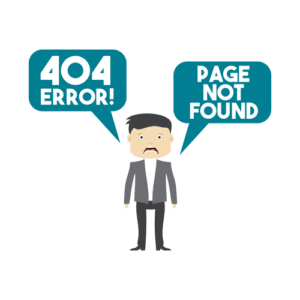
Companies with substantial short-term debt obligations may face challenges refinancing or rolling over debt, especially if credit markets tighten or credit ratings are downgraded. This can lead to increased borrowing costs or going conern default, heightening financial distress. If the business is in a financial position that suggests the going concern assumption can’t be followed (the business might go bankrupt), the financial statements should have a disclosure discussing the going concern.
Accounting
- Companies are required to update their going concern assessments at each reporting period, reflecting any changes in their financial condition or external environment.
- A going concern is a business that is expected to continue operating for the foreseeable future.
- This disclosure is required even if management’s assessment has no direct impact on accounting.
- The concept of “going concern” is pivotal in financial reporting, determining whether a company can continue operations without significant financial distress.
- Impacts from a fall and winter COVID-19 surge may bring further uncertainty to many companies.
In our experience, if there are such material uncertainties, then the company usually provides disclosure as part of the basis of preparation note in the financial statements. Companies may need to assess recoverability, leading to impairment write-downs if assets are unlikely to generate sufficient future cash flows. Under IFRS, IAS 36 mandates impairment tests when signs of impairment exist, potentially altering depreciation schedules and affecting present and future net income.

Financial Services
In one of these situations, the reporting entity considers the going concern basis to be appropriate, but a material uncertainty exists. This means that there’s a chance the entity might not be able to continue in business in the foreseeable future. Causes of a going concern warning can be varied, but some common reasons include a company’s inability to generate cash to meet its financial obligations, a significant decline in revenue, or a major disruption to its operations. In summary, going concern case studies can provide valuable insights into the challenges that businesses face in maintaining their status as a going concern.

Instructions for an Auditor

This disclosure is required even if management’s assessment has no direct impact on accounting. In either case, the required disclosures include the principal conditions or events that raised substantial doubt, and management’s evaluation of the significance of the conditions to the entity’s ability to meet its obligations. In the event of a going concern qualification, auditors are required to express a qualified opinion on the financial statements, indicating that the company’s ability to continue operating is uncertain. This can have significant implications for investors and stakeholders, who may view gym bookkeeping the company’s financial health as a concern. Effective communication with stakeholders is paramount when addressing going concern issues. Transparent and timely information can help maintain trust and confidence, even in challenging times.
- Management’s plans to address these risks, such as restructuring or securing additional financing, must also be critically analyzed for feasibility.
- Many, or all, of the products featured on this page are from our advertising partners who compensate us when you take certain actions on our website or click to take an action on their website.
- The going concern assumption is a fundamental accounting principle that underlies financial reporting.
- The memo typically includes a detailed analysis of the company’s financial situation, including its cash flow, debt, and revenue.
- Management’s responsibility for going concern extends beyond the financial reporting process.
Going Concern Concept

Auditors also delve into the company’s historical financial data, looking for patterns or anomalies that could indicate potential going concern issues. They assess the company’s liquidity ratios, debt covenants, retained earnings and compliance with financial obligations to identify any red flags. This historical analysis provides a context for understanding the company’s current financial health and its ability to withstand future challenges. Under GAAP, the going concern concept assumes a company will continue operating indefinitely unless evidence suggests otherwise, requiring management to assess its ability to generate sufficient revenue to avoid bankruptcy. This concept is crucial in financial reporting, as it impacts a company’s financial statements and disclosures.
- This is particularly concerning when the firm will have difficulty finding the funds for a major payout.
- If you’re dealing with a privately held business, it’s essential to consider the going concern assumption.
- This affects liability classification, asset value, and time-span distribution of expenses.
- A going concern is generally a positive indicator, suggesting a company is likely to survive and operate for the next year.
- This foreseeable period normally has twelve months from the ending period of Financial Statements.
- By doing so, auditors can identify any discrepancies or irregularities that might suggest financial instability.
